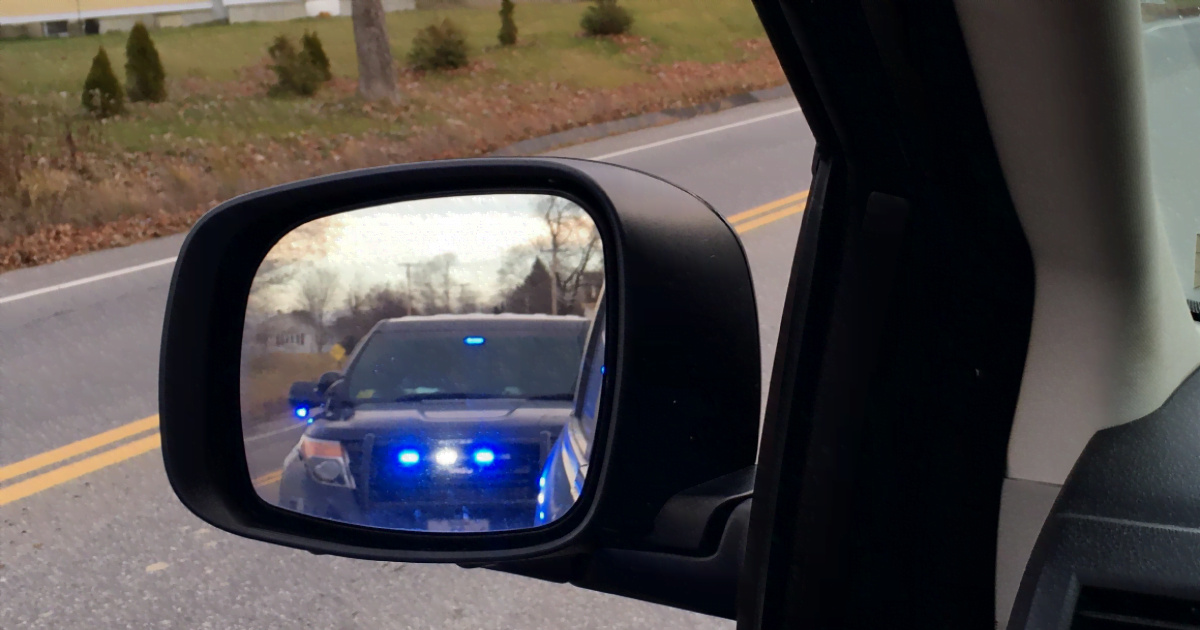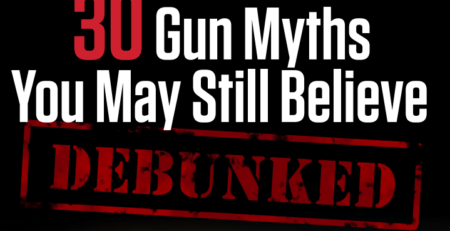5 Things to Do When The Police Pull You Over
No one likes a traffic stop, but doing these few things will ensure your traffic stop ends safely for everyone involved. Think about this: The most dangerous thing police officers do every day is make traffic stops. Every traffic stop is potentially deadly for the police officer. And it’s not just the danger of gunfire or sudden assault that police officers face; passing traffic is even more deadly. You, as a responsibly armed citizen, must understand that a police officer is already on alert even before arriving at your vehicle window. The officer is on the lookout for a whole host of dangers and does not know your intentions during this interaction.
Officer safety is the overriding element in any police interaction with the public. Police officers do not know what to expect, so you can bet they are expecting the worst until such time as they are given clear indication that an interaction will be peaceful and without incident. Even so, all cops know good incidents can go bad very quickly. It is sad but true that anything can happen at any time. There is no such thing as a routine traffic stop. Remember this: The officer doesn’t know anything about you. The only information available prior to the stop is your driving history. You will dictate the officer’s level of concern and influence his or her actions. Good officers will not approach your car thinking you are a sociopath. But good officers also know you could turn out to be one.
The easier you make things, the easier things will be. Keeping this in mind, here are five things you must do to ensure your traffic stop ends without incident.
At this point in the traffic stop, the officer will identify himself, likely briefly explain the reason for the stop and ask you for your license and registration. Tell the officer you need to reach for those items and specifically ask, “Is it OK for me to (insert explanation of your upcoming movements)?” When the officer tells you it is OK to move, do so slowly. You may wish to narrate your movements, but do so politely.
If you live in a state that requires you to inform police officers that you have a concealed carry permit, now is the time to do so. Calmly tell the officer that you have a concealed carry permit and that you have your personal weapon with you. Follow the officer’s instructions to the letter, repeating them for clarity if you feel you must, but remember to be cognizant of the tone of your voice. If the officer feels as though you are getting angry or agitated, you will see a definite shift in his or her demeanor. If you are not required to announce that you have a concealed carry permit, it is often best not to do so.
When you are not actually handing the officer your identification or reaching (with permission and acknowledgement) for something, keep your hands on the wheel. Your passengers should keep their hands on the seat at all times.
NEVER, never, never...
- DONT REACH FOR ANYTHING while pulling over or while the officer is approaching your car. This is the very best way to put a cop on high alert.
- DON’T ARGUE. The side of the road is not the place to plead your case. Save that for your court appearance. If you really feel like the ticket was given in error or the stop was made without just cause, go to court
- DON’T be rude. Yep, you pay the officer’s salary. Yep, he is a public servant. No, he doesn’t have anything better to do right now. Being rude has never made — and will never make — a traffic stop go smoothly.
- DON’T talk about your rights. The police officer knows your rights (probably better than you do). And if you really feel like your rights are being violated, take the ticket, get a lawyer and sue the police agency.
- DON’T get out of the car unless you’re told to do so. Here is how cops think: If you are in the car, it’s very difficult for you to physically assault an officer. Once you
get out of the car, the danger of physical confrontation grows exponentially, which means the officer’s anxiety level grows at the same rate.
REMEMBER THIS:
The cop doesn’t want to be on this traffic stop any more than you do. And the cop certainly doesn’t want anything to “go wrong” during the stop. The cold, hard truth about any police use of force is that the police officer does not determine the level of force to be used. The resistive subject does that. The more you resist, the more force the officer must use to control the situation.
Even more importantly, it’s not YOU, specifically; it’s everyone. Remember that police officers regularly deal with some of the worst people on the planet. This means cops are nearly always trying to sort through mountains of B.S. just to find a shred of truth. If that is not enough to put an officer on guard during a traffic stop, remember too that the officer is trained to take control of any situation. No one is allowed to push the officer around. This means the officer will often be direct, sometimes even abrupt. A criminal will take any opportunity to lead an officer away from the truth, so the cop will work very hard to keep things on task and to the point. Sometimes this may come off as rudeness — or worse. Don’t let that cause you to escalate the situation.
There is one more thing you need to remember:
Cops are people too.
Think about all the little stressors in your life: bills, kids, aging parents, car care, a leaky roof or a broken water pipe. Cops have all those day-to-day stressors to deal with too. And a cop also puts on a gun and bulletproof vest to start a very stressful workday. Maybe the officer just came from a traffic crash where excessive speed resulted in a child’s death. Maybe the cop has teenage kids and just worked the scene of a drug overdose where a teenager died. Your attitude could help that officer make it through a really tough day.
Don’t believe the hype. Cops are not out to get you or anyone. They are just doing a very tough job and YOU have the opportunity to make that job easier. No one enjoys a traffic stop, not even the police officer. But if you follow the tips provided here, you will ensure that your traffic stop never ends up on national news.




